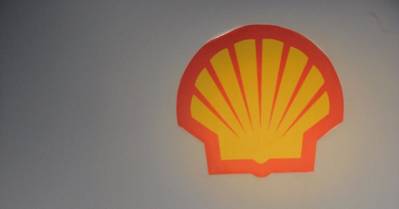When it comes to forecasting the oil price, big companies play their cards very close to their chests.
But the 50 percent premium that Royal Dutch Shell (RYDAF) agreed to pay this week in a stock and cash deal to acquire smaller rival BG says a lot about Shell's expectations for a swift recovery in oil prices.
The beauty of the deal and the upside, though, won't be in the bold bet turning good, say investors and analysts as they urge Shell to use the deal as a opportunity to review its portfolio and geography.
"The upside comes in the deal becoming a catalyst for change in transforming the upstream business over the next 4-5 years in a way that the previous pivot towards North American onshore really failed to do, in our view," UBS said on Thursday.
Analysts from Barclays (BCS) agreed that because the BG deal brings Shell rich reserves and production outlook in Brazil and the Gulf of Mexico, it hoped it would prompt the company to slow down or relinquish less competitive assets.
"This includes high breakeven projects such as Shell's heavy oil portfolio in Canada, assets difficult to develop such as those in the Arctic and projects in geopolitically unstable regions such as those in Iraq and onshore Nigeria," it said.
Shell's stock was up 1 percent on Thursday after falling 5 percent on Wednesday when investors expressed unease about the generous premium even though they celebrated the fact that Shell had finally done a big deal.
During a wave of mega-mergers 15 years ago - when BP bought Arco and Amoco and Exxon bought Mobil - Shell stayed on the sidelines.
Rising Gearing
Prior to the acquisition of BG, Shell, alongside Exxon, was seen as one of the best companies in terms of breakeven, in other words, its ability to balance its books, invest and pay dividends from cashflow without borrowing too heavily.
Contrary to Shell, which prior to the acquisition needed $75 per barrel to balance its book, BG, going through a peak investment period, needed a price of over $140, according to analysts from Jefferies.
"Shell's metrics/targets for the deal are based on the oil price recovering to an average of $90 in 2018," said analysts from Investec (ITCFY).
If prices stay lower, Shell would probably be forced to hit its self-imposed gearing ceiling of 30 percent, up sharply from its 2014 net debt/capital ratio of 12 percent and the imminent 20 percent post-deal completion, according to Investec.
That might cost Shell a downgrade in ratings, something the firm said it would be prepared to sacrifice - if it was just a one-notch downgrade - in order to preserve growth and dividends. It is due to meet ratings agencies soon.
"Downside comes if oil prices stay low and costs don't fully adjust: although by using mainly stock and not debt Shell has largely hedged that effect out to shareholders," UBS said.
It said it estimated that each $10 per barrel difference in the oil price scenario would result in a 2 percentage point change in gearing for the combined company.
"With oil price expectations and hence near-term multiples in flux, we turn to dividend as the basis for setting our Shell target price," Deutsche Bank said in a note adding that it believed the current yield of 5 percent was an appropriate reflection of risk and reward at this point in the cycle.
(Reporting by Dmitry Zhdannikov, editing by David Evans)







